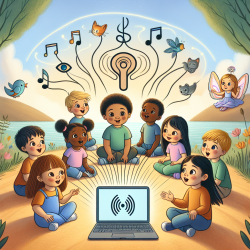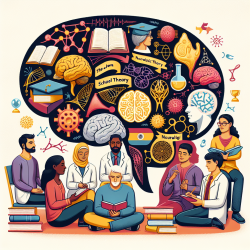As a speech-language pathologist, you're likely aware of the challenges dysphonic children face. A recent study titled Auditory processing in dysphonic children sheds light on how auditory processing skills impact these children and offers valuable insights for improving therapy outcomes.
Key Findings
The study assessed 42 children aged 4 to 8, comparing 31 dysphonic children with 11 children without vocal complaints. Using the Simplified Assessment of the Auditory Process (SAAP), the study found:
- 100% of the control group had normal auditory processing results, while only 61.29% of the dysphonic group did.
- Dysphonic children showed worse performance in non-verbal sequential memory tasks.
- Performance improved with age, particularly in sound localization skills.
Implications for Practice
Understanding these findings can significantly enhance your therapeutic strategies:
- Include Auditory Processing in Assessments: Regularly assess auditory processing skills to tailor interventions more effectively.
- Focus on Non-Verbal Sequential Memory: Implement exercises that improve non-verbal sound sequence memory, such as using musical instruments or rhythm games.
- Monitor Age-Related Improvements: Be aware that younger children may struggle more, and adjust your expectations and strategies accordingly.
Encouraging Further Research
This study highlights the need for ongoing research into the relationship between auditory processing and dysphonia. As practitioners, staying updated with the latest research can help refine our approaches and improve outcomes for our young clients.
To read the original research paper, please follow this link: Auditory processing in dysphonic children.










